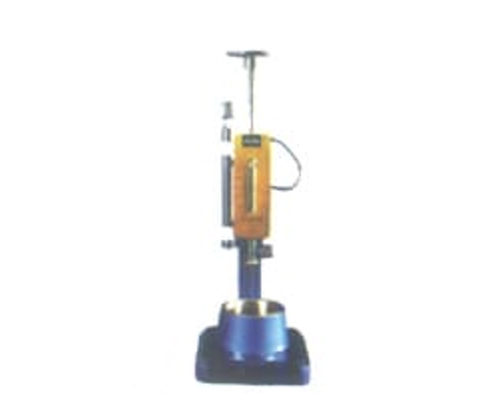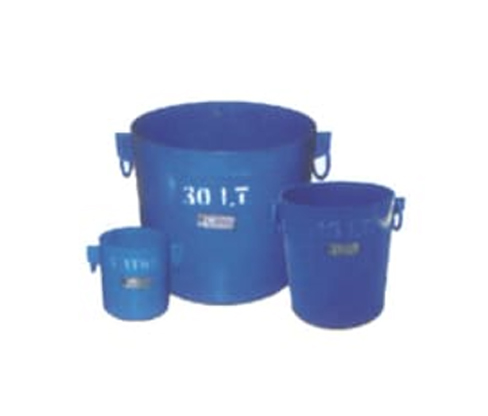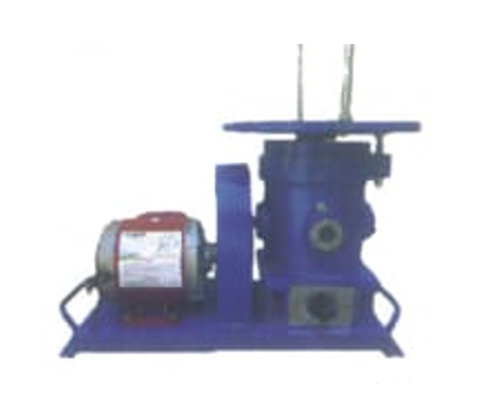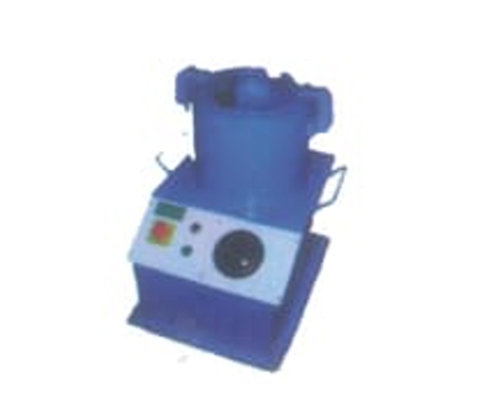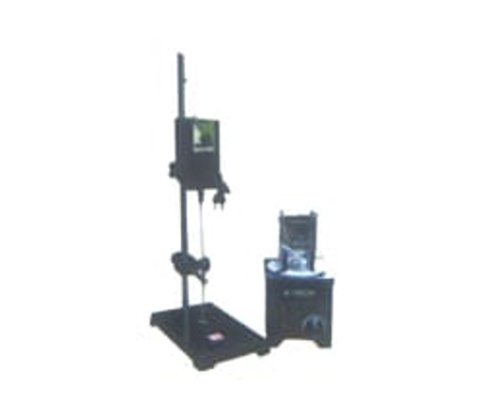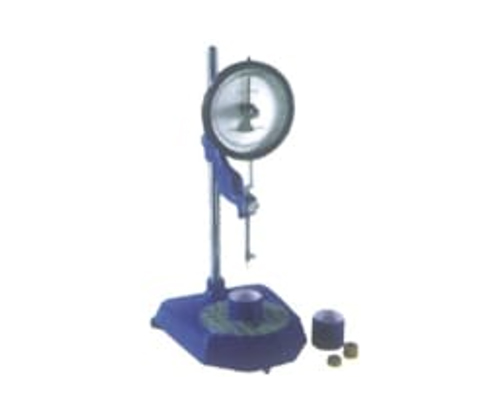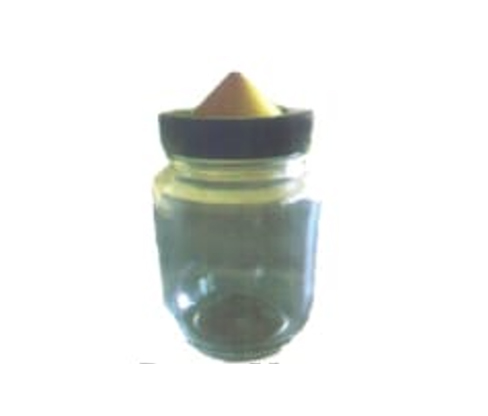- Kh.No 40/A, Gali No. 10, Jeevan Park Siraspur, Libaspur, Delhi-111042
- rishabhlabequipments@gmail.com
- +91 9958441218, 9873511218
Vicle Needle
We are successfully ranked amongst the top distributors, exporters, traders and suppliers of finest quality array of Digital Compression Testing Machine. This is specially designed to conduct compression and crushing strength tests on Containers, Concrete cubes & cylinders, hollow blocks and various other materials
Suitable for conduct in Cold Crushing Strength test on refractory specimens, these testing machines is thoroughly examined by our vendors on predetermined parameters before dispatch to our clients.
C.B.R Test Apparatus
The C.B.R. (California Bearing Ratio) test apparatus is a laboratory equipment used in civil engineering to determine the strength of subgrade soils and base course materials for road and pavement design.
The C.B.R. test apparatus provides a controlled environment for conducting C.B.R. tests on soil specimens, allowing engineers to assess their bearing capacity and suitability for construction projects such as roads, airfields, and embankments.
Direct Shear Apparatus
A Direct Shear Apparatus is a laboratory instrument used to determine the shear strength properties of soil specimens. This test is essential in geotechnical engineering for understanding soil behavior under various loading conditions, which is crucial for designing foundations, retaining walls, and slope stability analysis.
The Direct Shear Apparatus provides a controlled environment for conducting direct shear tests on soil specimens, allowing engineers to evaluate shear strength parameters and predict soil behavior under different loading conditions.
Cylindrical Measures
Cylindrical Measures, often referred to simply as measures, are cylindrical containers used in various industries for measuring and transporting specific quantities of liquids or granular materials.
Cylindrical Measures provide a simple yet effective means of measuring and transporting liquids or granular materials in a wide range of applications, including laboratories, kitchens, industrial facilities, and agricultural settings.
Test Sieves
Test Sieves, also known as mesh sieves or grading sieves, are widely used tools in various industries, particularly in materials testing and particle size analysis.
Test Sieves are critical tools for particle size analysis and materials testing, providing valuable information about the size distribution and characteristics of particles in various materials. They are widely used in diverse industries to ensure product quality, compliance with specifications, and process optimization
Sieves Shakers
Sieve Shakers are devices used to agitate or vibrate sets of sieves, assisting in the process of particle size analysis.
Sieve Shakers are indispensable tools for particle size analysis, providing a fast, efficient, and reliable method for separating particles into different size fractions. They play a crucial role in quality control, research, and development processes across various industries.
Marshal Stability Test Apparatus
The Marshall Stability Test Apparatus is a crucial equipment used in the design and quality control of bituminous mixtures, especially for asphalt pavements. It is named after Bruce Marshall, an engineer from the Mississippi Highway Department, who developed the test method in the early 20th century.
The Marshall Stability Test Apparatus provides a standardized method for evaluating the stability and load-bearing capacity of bituminous mixtures used in asphalt pavement construction, helping engineers optimize mixture design and ensure the durability and longevity of roadways.
Bitumen Extractor Electrical
An Electrical Bitumen Extractor is a specialized piece of equipment used in the laboratory to extract bitumen from bituminous mixtures, such as asphalt concrete, as part of quality control and research processes.
The Electrical Bitumen Extractor provides a reliable and efficient method for extracting bitumen from bituminous mixtures in the laboratory, allowing engineers and researchers to assess the quality and performance of asphalt materials accurately.
Ductility Testing Machine
A Ductility Testing Machine is an apparatus used in the field of asphalt testing to measure the ductility of bituminous materials at various temperatures. Ductility refers to the ability of a material to deform under tensile stress without fracture, often expressed in terms of the elongation before breaking. In the context of asphalt, ductility is an essential property that indicates its ability to withstand deformation without cracking under traffic loads and temperature variations.
The Ductility Testing Machine provides a standardized method for evaluating the ductility of bituminous materials, helping engineers and researchers assess their suitability for use in asphalt pavements and other applications.
Ring & Ball Apparatus
The Ring and Ball Apparatus is a commonly used instrument in asphalt testing to determine the softening point of bituminous materials. The softening point is the temperature at which the bitumen becomes soft enough to allow a standard ball to fall a specified distance under prescribed conditions of test. This property is important in assessing the behavior of bituminous materials under elevated temperatures, such as those encountered in road construction and maintenance.
The Ring and Ball Apparatus provides a standardized method for determining the softening point of bituminous materials, allowing engineers and researchers to assess their suitability for use in various applications, particularly in road construction and maintenance.
Standard Penetro Meter
The Standard Penetrometer, also known as the Penetrometer or Needle Penetration Test Apparatus, is a device used in the field of asphalt testing to measure the consistency or hardness of bituminous materials. It determines the depth to which a standard needle or cone penetrates the asphalt sample under specified conditions of temperature, load, and time.
The Standard Penetrometer provides a simple and reliable method for assessing the consistency and hardness of bituminous materials, helping engineers and researchers evaluate their suitability for various applications, including road construction and pavement maintenance.
Pycno Meter
A Pycnometer is a laboratory instrument used for measuring the density or specific gravity of liquids and solids. It consists of a small, sealed container with a precisely known volume, typically equipped with a cap or stopper. The pycnometer operates on the principle of Archimedes' principle, which states that the buoyant force on an object immersed in a fluid is equal to the weight of the fluid displaced by the object.
The Pycnometer is a versatile and widely used instrument for measuring the density or specific gravity of liquids and solids in various scientific and industrial applications, including quality control, research, and material characterization.
Liquid Limit Apparatus
A Liquid Limit Apparatus is a laboratory instrument used in geotechnical engineering to determine the liquid limit of soil. The liquid limit is an important index property of soil, representing the moisture content at which the soil transitions from a plastic to a liquid state. This transition is typically assessed using the Casagrande method, which involves repeatedly rolling a soil sample in a cup until it crumbles along a specified groove.
The Liquid Limit Apparatus provides a standardized method for determining the liquid limit of soil, which is crucial for evaluating its engineering properties and suitability for various construction applications.

